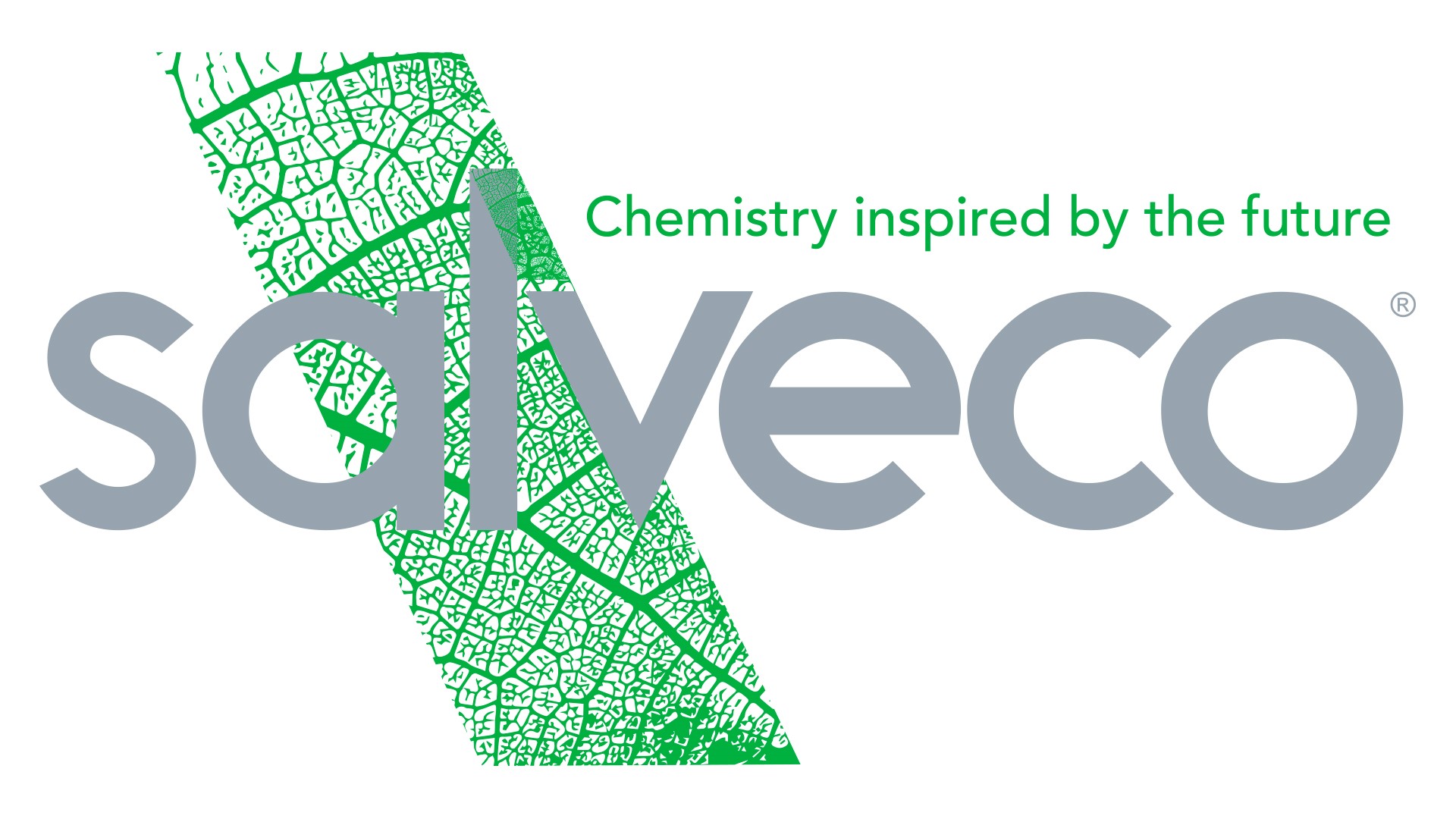Essential oils
Essential oils (EO) are substances extracted from certain plants (aromatic plants). Most often liquid at room temperature, with a fatty texture and a density generally lower than that of water, they are liposoluble.
Since the 9th edition of the Pharmacopoeia in 1972, and according to the AFNOR NF T 75-006 standard of 1987, the qualification “essential oil” can only be given to a product obtained from a raw material plant, either by steam distillation, or by cold expression in the case of citrus fruits, or by dry distillation.
We use exclusively EO produced by the steam distillation method (see diagram below). They are 100% pure and natural EO.
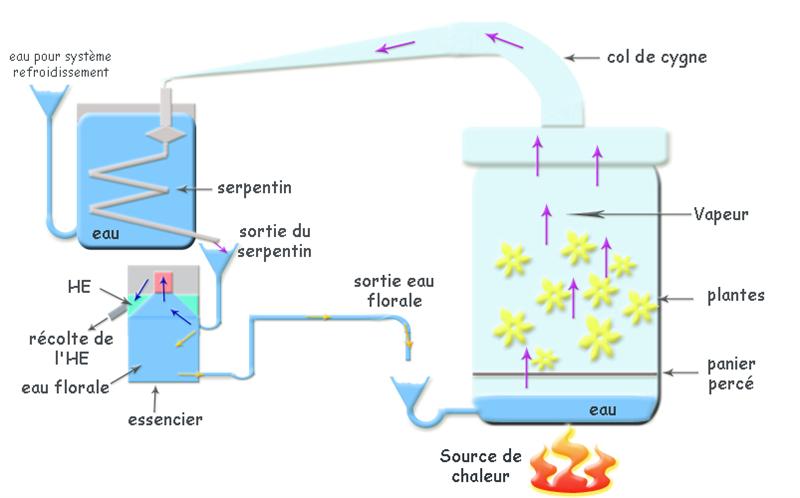
The richness and complexity of their chemical composition give EO many therapeutic and sanitizing properties used for various purposes since antiquity, through aromatic plants. The biological role of essences within the plant still appears to be obscure. Currently, the hypothesis is oriented towards an ecological function of protection of the plant against predators (microorganisms, fungi, insects, parasites,…) and/or attraction of pollinators (for example, geraniol “calls” bees to the flowers).
Medicine has long used medicinal and aromatic plants for their antimicrobial power in the fight against infectious diseases. They are used in the form of powder or tea (Lime, Mint, Verbena, …) or galenic preparations (tinctures, extracts, syrups, hydrolysates and essences) that contain all the active ingredients of the plant.
Nowadays, the synthetic industry has relegated the use of the virtues of plants to a secondary rank, even though they represent a convenient, inexpensive method of administration that does not generate side effects, not to mention the toxicity and the phenomenon of resistance of microorganisms caused by synthetic products, unlike essential oils: PRIMUM NON NOCERE (first do no harm).
However the subject “allergens” is often evoked when one speaks about Essential Oil, here a small informative note (references: Perfumes and Cosmetics n° 209 and 211):
According to the work of Prof. Axel Schnuch of the University of Gottingue (Germany), IFRA has decided to revise the list of substances classified as allergenic. According to him, some of the 26 substances would have no reason to be on the established list of allergens. Mr. Houri, Director of IFRA, says that the latest scientific knowledge must be used to update the list. The contact of an allergenic substance with the body should not cause an immune reaction, except for the so-called “hypersensitive” subjects where the meeting between an antigen and an antibody generates abnormal manifestations, linked to a genetic particularity. The regulated thresholds of allergen content are determined administratively and chosen to avoid provoking a reaction in subjects already sensitized to a given substance. It should be noted that the simple fact of peeling an orange can provoke a reaction of intolerance in certain hypersensitive individuals. However, the sale of oranges is neither regulated nor prohibited…
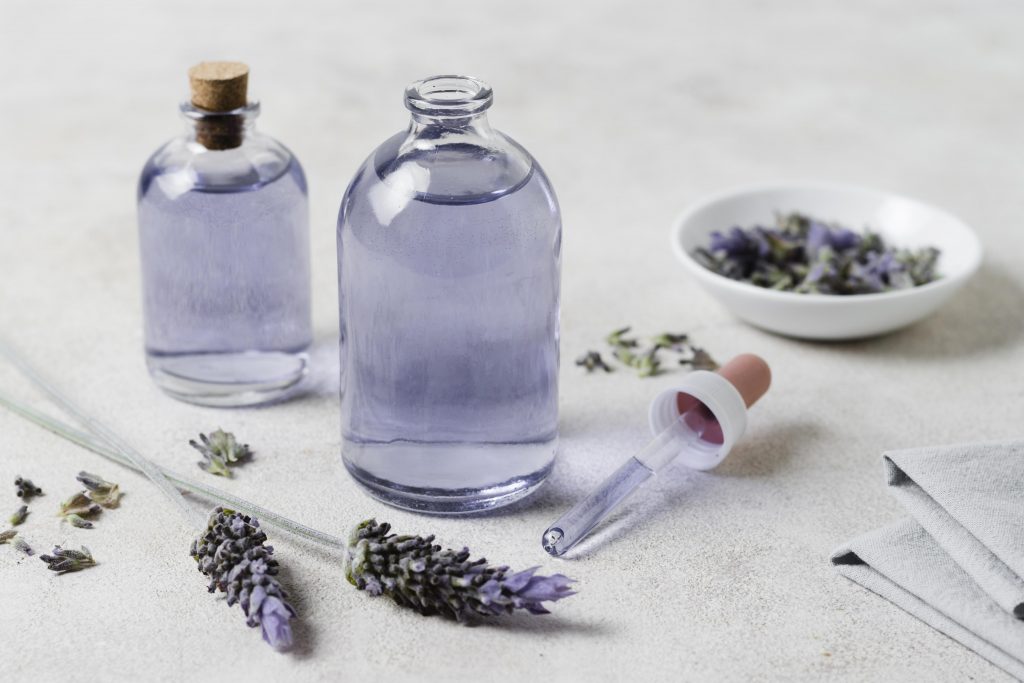
For more than a century, science has believed that it should oppose the remarkable contributions of synthetic drugs to the natural virtues of phyto-aromatherapy from which, however, these drugs were often derived. This was a mistake that led to the neglect of simple, effective and perfectly safe solutions in favor of chemical drugs that sometimes have annoying, even harmful, side effects.
Physicians could get more use out of smells than they do.
Montaigne
It is in this spirit and in light of the above that we have updated the use of EO in everyday life with innovative technology.
SALVECO’s expertise in 100% natural olfaction brings a remarkable comfort of use. Our perfumes can be created according to the customer’s needs.
To go further on out-licensing or private branding
Read our latest articles and download our white paper to find out about out-licensing and private labeling at SALVECO.
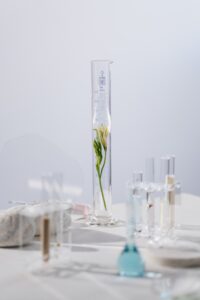
SALVECO, the French plant-based laboratory, strengthens its leadership position
SALVECO, the French laboratory specializing in Plant-based Chemistry, is proud to announce recent major developments that further strengthen its market position.
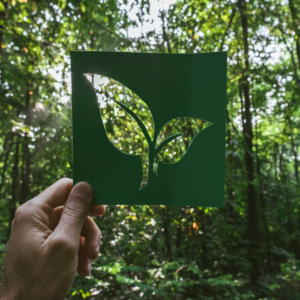
Laboratoire Science et Nature has signed a licence as part of a technological and industrial partnership with the French laboratory Salveco, a specialist in disinfection with its EFFIBIOZ technology.
Laboratoire Science et Nature has signed this licence as part of a partnership to promote Salveco’s unique technology.
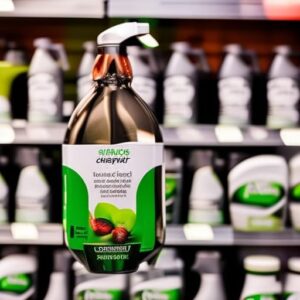
Revolutionizing Homecare Products with Salveco “Label Advantage”
Homecare product manufacturers are under increasing pressure to meet consumer demand for safe, effective, and sustainable products. Salveco is revolutionizing the industry with its “label advantage”, to help manufacturers differentiate themselves and align with the new consumers’ values.
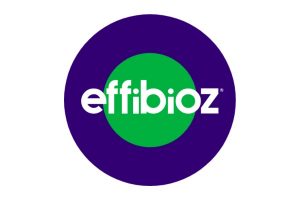
DIVERSEY signs a worldwide agreement to market effibioz technology of the French laboratory SALVECO
Professional disinfection, cleaning and hygiene: DIVERSEY signs a worldwide agreement for the promotion and development of the effibioz technology of the French laboratory SALVECO. DIVERSEY,
